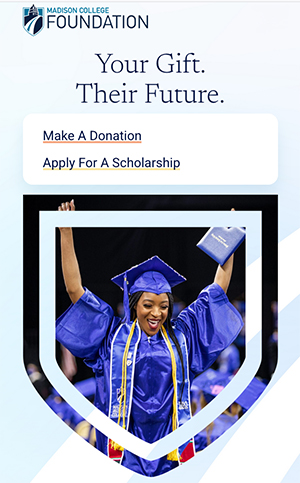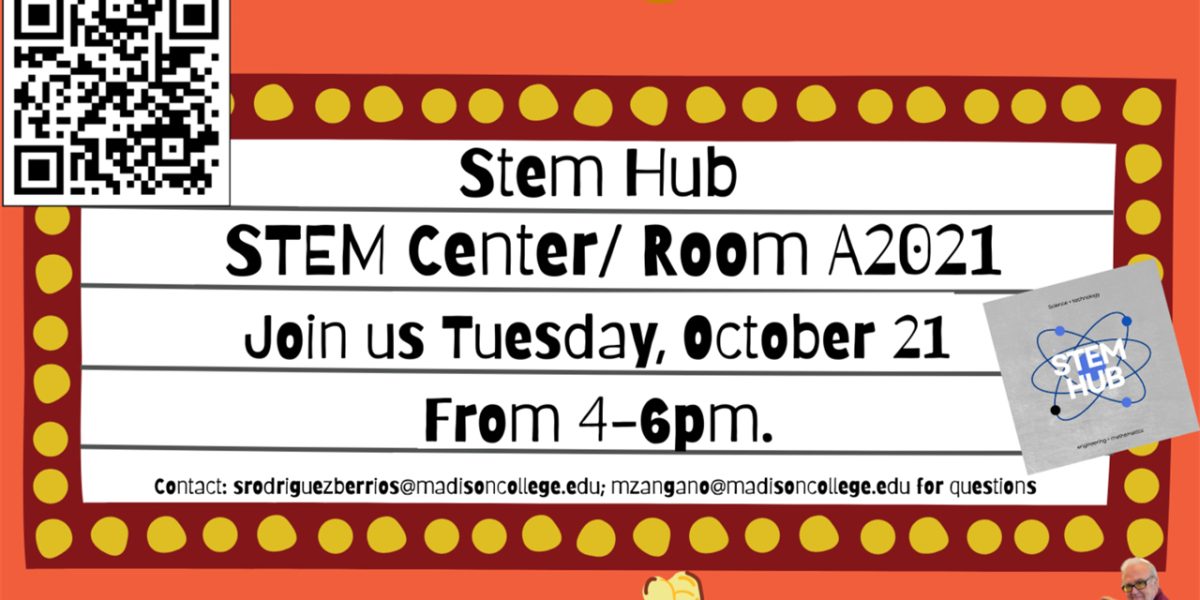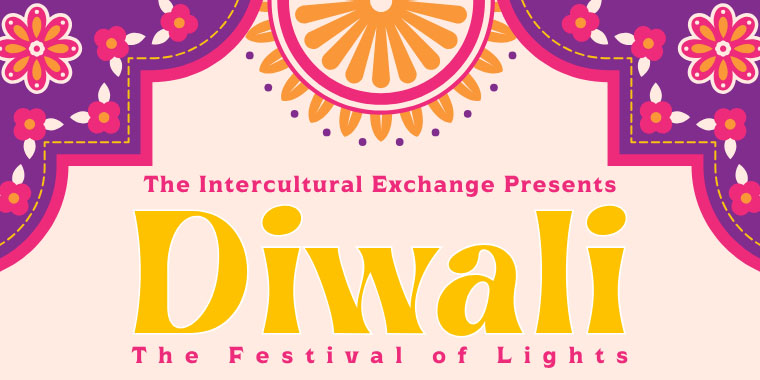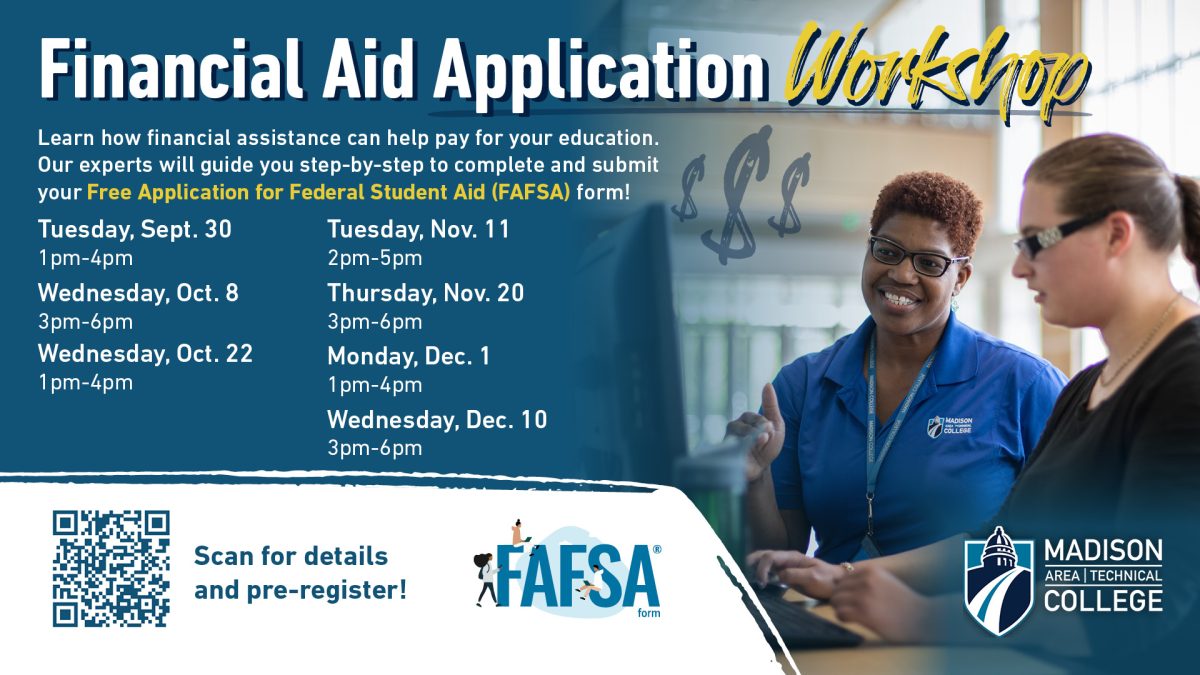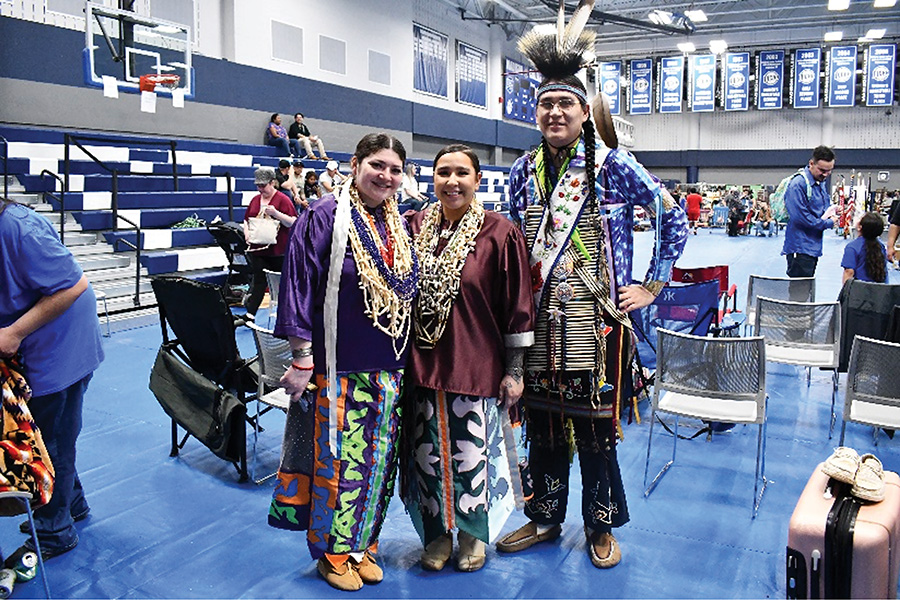Return of the Powwow at Madison College
Penny from Menominee and a student at Madison College, join her mother (middle) and father (right) for a photo at the Madison College Powwow.
May 3, 2022
Madison College’s annual powwow was finally able to return. This comes after some time away due to the COVID-19 pandemic. It was put on by a couple different student organizations, including the Office of Equity and Inclusion, the Intercultural Exchange, United Common Ground and the Native American Student Association. While there used to be a small entry fee, it was open and free to the entire community this year.
As a person of Native blood, powwows have always been something I loved; however, I always had so many questions about what brought the vendors together and how many people generally got involved with putting them together.
I asked dancers many questions, as well as the drumming group from my tribe, the Menominee, called Winged Eagle. How they got involved with the powwows, dancing and drumming were some other topics we talked about. I also asked how do people that live away from the reservation get involved. I had the great pleasure of talking with Winged Eagle and found that they had been a family who lived on the reservation, family name Webster. They have kept it a tradition in their family. The Webster’s shared that it is something that they pass on to the new generations as soon as possible, and one of the young ones had received a hand drum as a gift which they had brought with them to the school’s powwow.
Many people I spoke with had very thoughtful perspectives that I enjoyed hearing from. I managed to have a good chat with all the vendors before my exhaustion headache set in.
Dennis Kenote from Menominee is a member of the color guard, as well as a Vietnam veteran. We had a very enlightening though brief conversation.
I had asked him about how he felt during his service in Vietnam as an Indigenous person, how he felt his treatment was during this time and if it changed from before service as well as possibly changed after. Though our time was short, I hope to chat again in the future to share his story through The Clarion.
Kenote stated he felt no animosity in the service by non-Natives and that he felt no hate towards others. He even specifically mentioned that no, he does not feel any bitterness. He chose to enlist, like many of the other Indigenous Americans that served in the Vietnam War, to further protect his homelands, regardless of who was on that land. He very much indicated a sentiment of wholeness as a country and an individual citizen above being distinctive about racial differences.
Our conversation also included a smaller conversation about how our tribal technical college differs between its two campuses: the one in Keshena, our tribe’s “capital city,” and the campus in Green Bay. The Keshena campus is run by nearly all Indigenous Americans and most of the instructors are Indigenous as well.
This is not the case in Green Bay. For a brief bit, I was enrolled in my tribe’s tech college in the spring of last year. My experience with Green Bay’s location was that a fair number of staff were non-Native and predominantly white. This weighed heavily on me and others within the tribal community.
The tribal school’s focus was on revitalization and culture, which non-Native people can’t participate in; they shouldn’t even speak over the voices of Native peoples. There are similar issues in tribal clinics. This stems from the need to outsource due to the lack of tribal people’s access to resources and education, even if they don’t live on the reservations.
My conversation regarding this outsourcing and issues of speaking over Native people came up much more heavily in a conversation with one of the vendors. There were two families from around the Brown County area that talked with me about dilution of culture in various ways. Some forms of this dilution were the allowance of non-Native people vending at powwows and people selling knockoffs or in some way disingenuous items that claim to be Native work.
I felt that these two families were the ones that offered me up their true feelings and thoughts. I’ve never engaged in these kinds of conversations at a powwow before. Often, we keep the spirit of gathering on our tongues, which was demonstrated by the dancers. They openly communicated that they love dancing to engage with their tribe’s culture and to help share stories.
This powwow was something special with the mood of the dancers. Most dancers were full of smiles and cheers. I’ve seen a range of emotion and exhaustion among dancers at powwows on the reservations that I have gone to. I do believe the dancers really carried with them the spirit of celebration at the Madison College powwow.
Everyone from the tribal communities said they were very excited and happy to attend again. It was so good to see and to hear.















